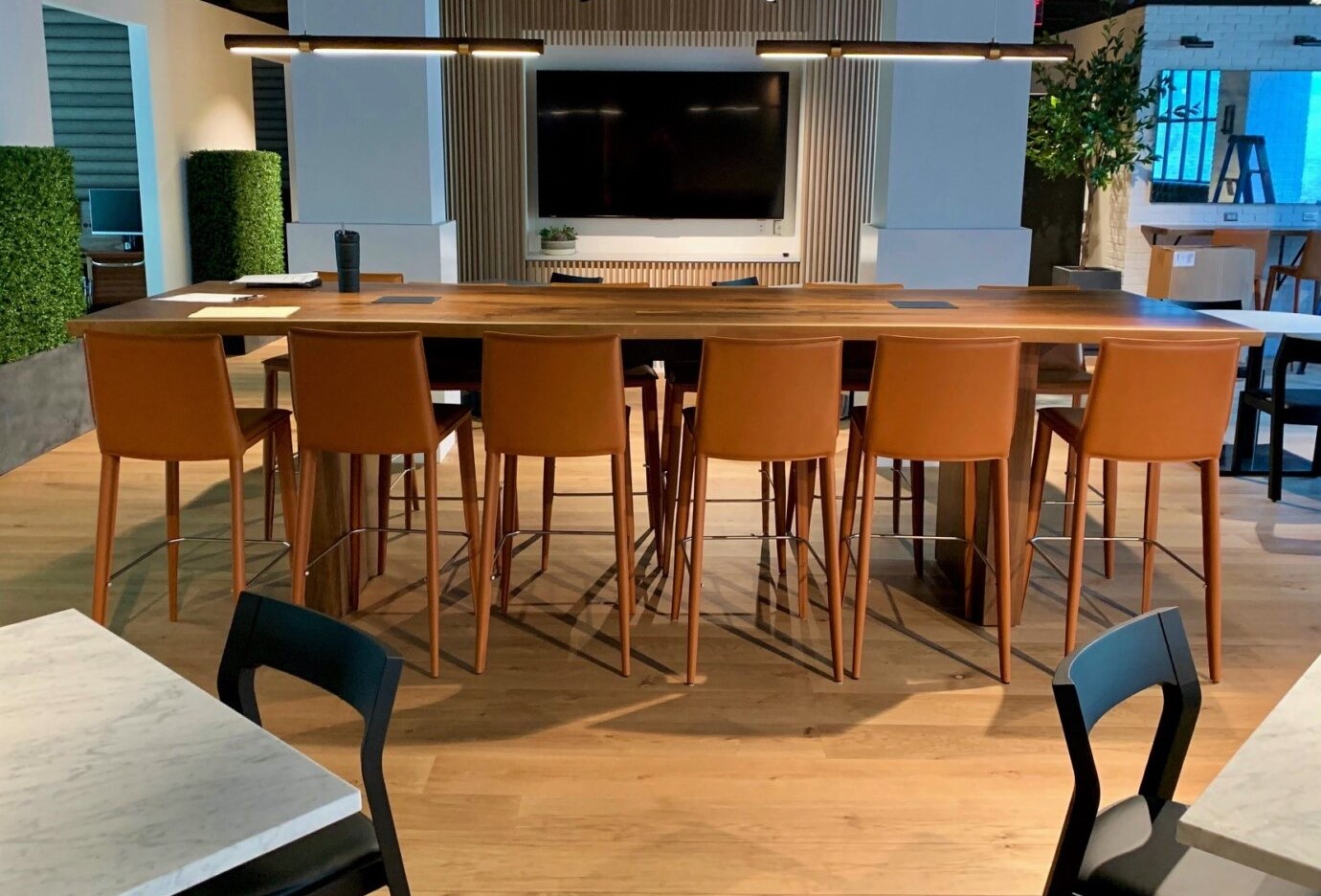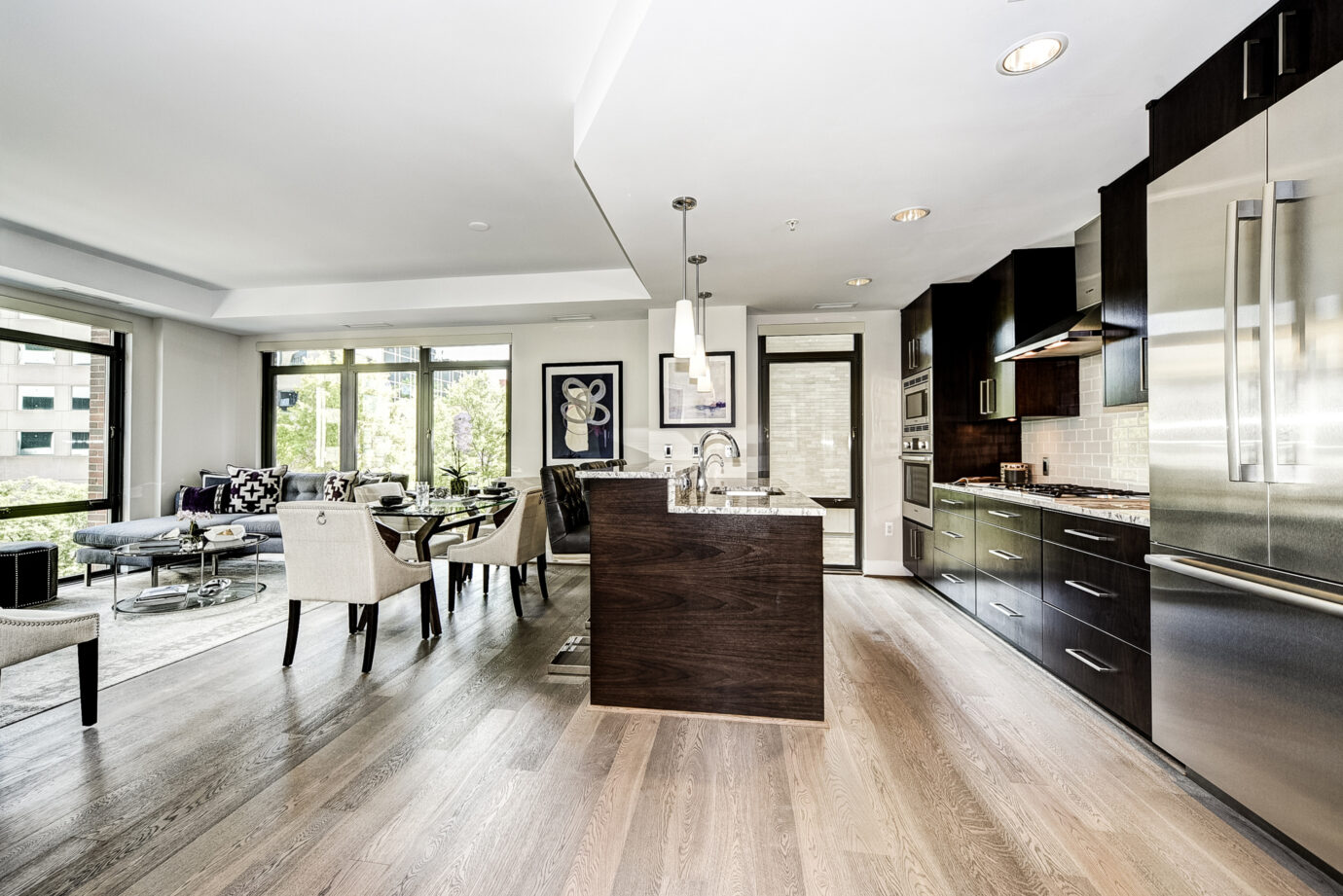Flooring University – Sound Control in a Commercial Environment

In the dynamic world of commercial spaces, sound control isn’t just a practical concern—it’s the key to unlocking comfort, focus, and productivity. Whether you’re crafting an office haven, a vibrant retail space, or a welcoming hospitality venue, we understand that minimizing noise transmission is essential for creating environments where people truly flourish.
We’ve designed a comprehensive guide to help our clients navigate through the essentials of sound control, from selecting the perfect underlayment to mastering installation techniques and deciphering IIC ratings.
Underlayment vs Attached Backing: Making the Right Choice
When it comes to sound control, the choice between underlayment and attached backing plays a vital role. Underlayment, a separate layer installed beneath the flooring material, provides additional sound insulation and moisture protection. On the other hand, attached backing comes pre-attached to the flooring, offering some level of sound absorption but is less effective than dedicated underlayment.
Although it can be more expensive than an attached backing, underlayment is the recommended choice for optimal sound control in commercial settings, as it creates a decoupling layer that minimizes sound transmission between floors.

Click vs Floating vs Glue Down: Installation Methods and Their Impact
The installation method of your flooring significantly impacts its sound control capabilities. Click-lock flooring features interlocking edges that snap together, creating a “floating” floor that rests on the subfloor without adhesive. While easy to install, floating floors may offer limited sound insulation, especially in commercial environments.
Glue-down flooring, as the name suggests, is adhered directly to the subfloor with adhesive. This method provides superior sound control compared to floating floors. This is because it minimizes vibrations and sound transmission through direct contact with the subfloor.
IIC Ratings: Understanding the Impact Insulation Class
When selecting flooring materials for commercial projects, pay close attention to their IIC ratings. The Impact Insulation Class (IIC) measures a floor/ceiling assembly’s ability to reduce impact noise, such as footsteps or dropped objects. Higher IIC ratings indicate better sound insulation. In commercial environments, particularly those with multiple stories, aiming for an IIC rating of fifty or higher is crucial to ensure adequate sound control and occupant comfort.
Choosing the Right Underlayment for Optimal Sound Control
The type of underlayment you choose significantly impacts overall performance. Common options include cork, rubber, foam, and specialized acoustic underlayment. Cork underlayment offers excellent sound insulation and natural resilience, making it a popular choice for commercial applications. Rubber underlayment provides superior impact noise reduction, ideal for high-traffic areas.
Foam underlayment’s are lightweight and affordable but may offer less sound control compared to other options. For optimal performance, consider specialized acoustic underlayment is designed explicitly for soundproofing in commercial environments.
Recent advancements in acoustic technology have led to the development of innovative underlayment’s that incorporate recycled materials and offer enhanced sound absorption properties.

Additional Measures for Comprehensive Noise Management
While underlayment and flooring choices are crucial, you could also consider implementing additional sound control measures for a comprehensive noise management strategy. These may include resilient channels installed perpendicular to floor joists to further minimize sound transmission between floors. Adding soundproofing insulation within walls and ceilings can significantly enhance overall sound control, particularly in shared walls and open-plan layouts.
Strategically placed acoustic panels absorb airborne noise, improving sound quality and reducing reverberation within the space. As discussed in our previous article Transform Your Space with Acoustical Wall Panels, these panels can be customized to blend seamlessly with the interior design while effectively managing noise levels.
Enhance Your Commercial Spaces with Effective Sound Control
Sound control is more than a necessity—it is the key to creating comfortable, productive environments. With the right underlayment, proper installation, and a focus on IIC ratings, you can transform any space into a haven of quiet efficiency.
Ready to elevate your space? Make informed choices today for a quieter, more productive tomorrow. Contact Spartan Today to explore your options!
Read More From Flooring University
ABOUT SPARTAN
Spartan Surfaces is a specialty flooring supplier headquartered in Bel Air, MD. Employing over 250 team members, Spartan prides itself on taking a human-centered approach to business. We put people at the forefront of everything we do – our clients, our suppliers, our communities, our team, and our families. Spartan holds warehousing and offices in Maryland, Minnesota, and Upstate New York with showrooms in D.C., New York City, and Chicago. Its geography spans the contiguous United States with continued expansion on the horizon. We are great people dedicated to great products, great families, great friendships, and great happiness. Whatever you’re working on, we’ve got you covered!